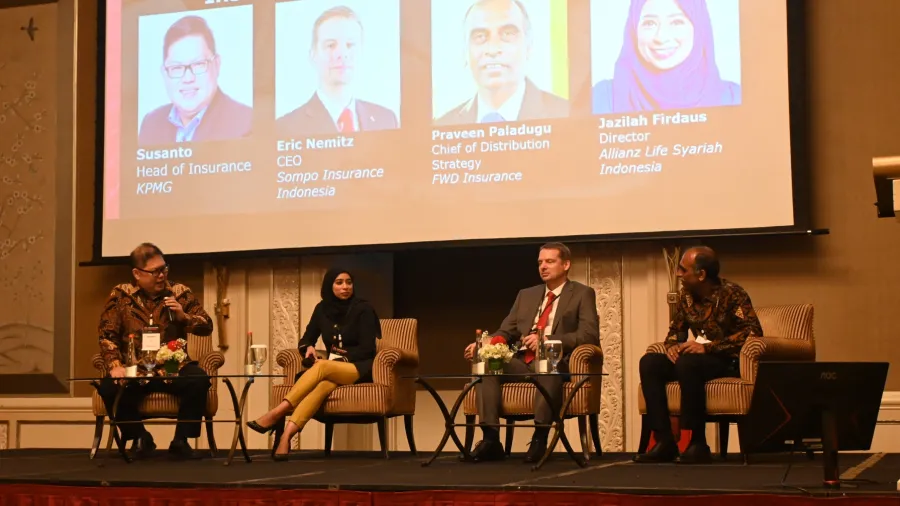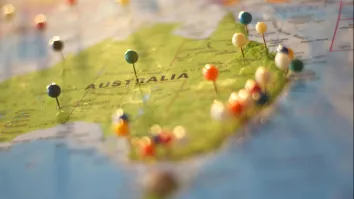
Indonesia needs a little tech to boost insurance penetration
When compared to GDP, insurance penetration in Indonesia is 1.4%, which is low relative to ASEAN.
INDONESIA’S insurance industry is experiencing growth, but the growth of premiums in the conventional insurance sector over the past five years has been relatively modest, averaging only 1.89% per year, as stated by the Financial Services Authority (OJK) in its 2023 report.
Despite the growth in Sharia insurance contributions, its market share remains relatively small compared to conventional insurance premiums.
Based on the ASEAN Insurance Surveillance Report 2022, when compared to gross domestic product (GDP), insurance penetration in Indonesia is relatively low amongst ASEAN countries at 1.4%. To illustrate, Singapore;s penetration rate is 12.5%, whilst Malaysia’s and Thailand’s are at 3.8% and 4.6%, respectively.
These issues were discussed in Panel 2 at the Insurance Asia Forum in Jakarta on 14 May. Featured in the panel were Eric Nemitz, CEO of Sompo Insurance Indonesia, who brought in his perspective from general insurance; Praveen Paladugu, chief of Distribution Strategy at FWD Insurance, who represented life insurance; and Jazilah Firdaus, director at Allianz Life Syariah Indonesia, representing Sharia insurance.
The panel was moderated by Susanto, head of Insurance at KPMG, with the topic “Market Penetration: Strategies for Deepening Insurance Penetration in Indonesia."
During the session, the panellists discussed the challenges faced in increasing insurance penetration in Indonesia and the strategies, including technological developments, used by insurance companies to address these challenges.
Key barriers
According to Praveen, the biggest barrier to insurance penetration in Indonesia is the geographic landscape. Indonesia is an archipelago with diverse demographics across its many islands, making it cost-inefficient to open branches in different cities.
“But technology is coming and it may help insurers to serve their customers. One product will not fit-all. The most important thing for insurers is to be careful with their customers, ensure they understand the product simply, and make the product relevant to the new generation,” he said.
Eric, representing the non-life or general insurance sector, had a slightly different view. In non-life insurance, asset accumulation is crucial; people would not buy insurance if they have nothing to insure.
Globally, most non-life insurance markets set a high average GDP per capita, around $5,000-$6,000, but Indonesia has not reached that level yet, so he does not expect a drastic increase in non-life insurance.
“What we can do is manage risks and protect assets. Insurers can contribute and address societal issues by educating the public by collaborating with other institutions,” said Eric. “And yes, it’s about making our products relevant, do the products fulfill their need, and also is the product significant, meaning it gives protection to their assets and is accessible across Indonesia."
Meanwhile, Jazilah highlighted the low levels of financial literacy and inclusion in Indonesia as a significant reason for the low insurance penetration. “Additionally, people tend to recognize Sharia finance in terms of banking, not insurance, and there are still debates among religious scholars about insurance, adding to the challenges to introduce Sharia insurance’s product,” she said.
To build trust with customers, Allianz Syariah Indonesia underscored transparency and upfront communication about their products and services.
Specifically for Sharia products, Allianz operates under the Tabarru concept, emphasizing collaboration. “Our products follow clearly stated fatwas in the contracts. We also maintained transparency and an easy claims process,” she said.
Strategies to increase penetration
All three panellists agreed on the benefits of adopting technology in the insurance sector. Praveen mentioned that most insurers now start with direct digital channels.
“But what we apply at FWD Insurance is a slightly different approach where we use digital commerce to enhance traditional channels. Technology is an enabler, but traditional channels will continue,” he said, emphasising that digital channels help simplify products and make it easier for traditional channels to grow.
Eric noted that traditional insurance often sells packages, giving customers no choice. However, nowadays with the development of digitalization it allows for customizable products tailored to individual needs.
“For example, vehicle insurance can now be customized based on usage,” he said. In the future, he argues, insurance will move away from packages to more tailor-made products.
The role of AI and agents in the future
Regarding the use of advanced AI in the insurance sector, Eric said that AI can assist in assessments and claims, as practiced by Sompo Insurance. “But decisions should be made by people. AI can help, but human interaction remains crucial for customers,” he asserted.
Eric also mentioned that the distribution channel depends on the targeted product segment. “Online channels are suitable for easy, standardized products, but more complex products need explanation,” he said.
Praveen agreed, staying: “I don’t think agents will be completely replaced in the near future. They are essential for explaining complex products.”
Jazilah added that due to the low financial literacy, agents are needed to educate customers. “I think agents will remain for at least the next ten years, especially for complex products. Once literacy improves, we may see a shift towards digital services,” she said.
One of the activities to help educate people about insurance that Allianz Syariah Indonesia took is by doing a roadshow across several cities in Indonesia.
They went to some organizations, communities and provided free sharia insurance protection. “We want to give those who do not have insurance the opportunity to directly experience the benefits provided by Sharia insurance,” Jazilah said.

















 Advertise
Advertise






